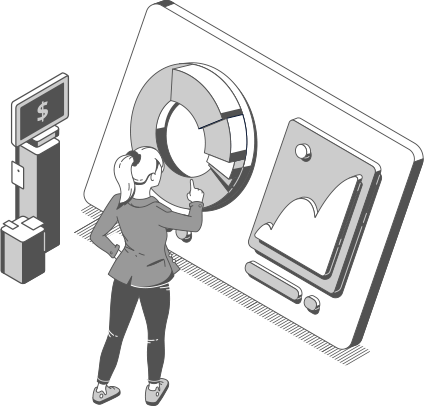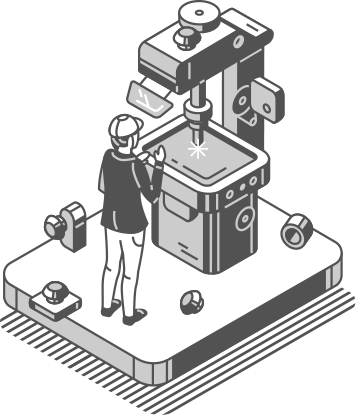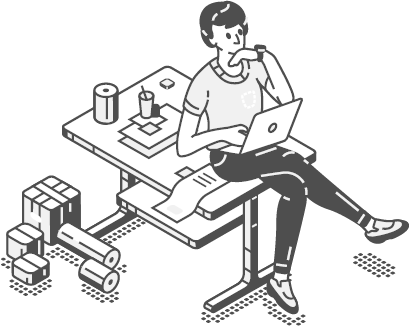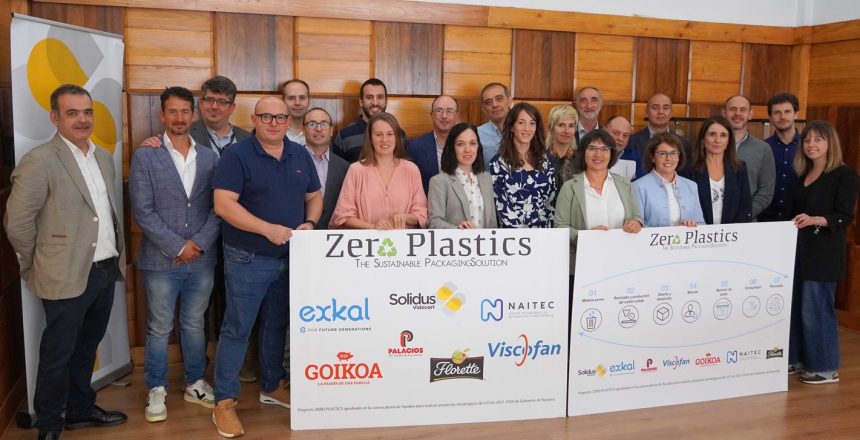The Department of Industry, Ecological and Digital Business Transformation has funded with 1.4 million euros the Zero Plastics project, which seeks to replace plastic packaging of food products with more sustainable options. This initiative is part of the ecological transition process, one of the main strategic lines included in the region’s Sustainable Strategy for Intelligent Development (S4). Developed under the call for strategic R&D projects 2021-2024, the project, led by Solidus, also has the participation of companies such as Naitec, Goikoa, Florette, Palacios, Excal, GLS, Vision Quality and Viscofan.
The purpose of Zero Plastics is to research and develop sustainable solutions for the packaging of pre-prepared and pre-cooked convenience products, using new non-plastic, biodegradable, recycled and 100% recyclable materials. These packages must guarantee the organoleptic, functional and nutritional properties of foods throughout their shelf life, minimising waste and contributing to the transition towards a more sustainable food industry.
Zero Plastics, which has had a collaborative working structure for three years, has involved Solidus, Viscofan and NAITEC in the creation of materials that were subsequently tested by three food companies: Florette, Goikoa and Palacios. Each of them tested different presentations of their products, validated through quality control with artificial vision thanks to VisionQuality technology. Throughout this process, Excal and GLS worked on the necessary requirements for food preservation.
RESULTS
Pre-industrial tests on an industrial scale, carried out with the packaging developed by Solidus in collaboration with Goikoa, have shown promising results. It was possible to thermoform a material with 70% cardboard, significantly reducing the amount of plastic per package, without compromising the barrier to gases and water vapour, which is necessary to maintain the shelf life of the products.
In the case of Palacios, progress has been made in optimising the design of the trays, although areas for improvement were identified. Work has been done on structural solutions that promise to increase packaging efficiency.
Florette, for its part, has researched the market for alternatives to plastic, such as a flexible film of vegetable origin, paper and mixtures of both, as well as cellulose. In the pre-prepared convenience food range, they have replaced plastic bowls with Kraft paper bowls, with encouraging results. The active compounds were found to have a positive effect on the quality of sprouts and iceberg lettuce, with great potential for application.
PROCESS
For its part, GLS-Excal has acquired key knowledge on the preservation requirements of fresh-cut and convenience foods, as well as on the properties of materials that meet these requirements to keep the food in optimal condition during display.
Meanwhile, NAITEC has developed a bio-based coating for waterproofing paper substrates. This breakthrough has enabled further development of water and vapour barriers, as well as coating formulation methodologies. In addition, NAITEC has implemented characterisation tests that can be applied in future projects and services.
Finally, VisionQuality has studied how to integrate a non-contact image processing system capable of detecting sealing defects or the presence of foreign bodies in packaging. Tests carried out on Florette, Goikoa and Palacios packaging and products have demonstrated the effectiveness of Artificial Vision algorithms, combined with Deep Learning, to identify defects in all samples. It has also defined what an online industrial inspection system should look like.
Source: navarra.es




